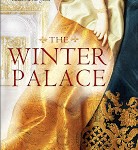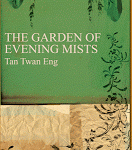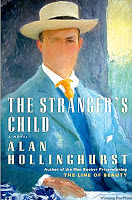 The Stranger’s Child (M) is not the first occasion that Alan Hollinghurst has written about the evolution of gay culture and literary biography.
The Stranger’s Child (M) is not the first occasion that Alan Hollinghurst has written about the evolution of gay culture and literary biography.
In The Swimming Pool Library (M) a beautiful, idle, aristocratic rogue looks for anonymous sex in a public washroom, only to find an elderly member of the British House of Lords having a heart attack. Impressed with this young man, Lord Nantwich engages him to write his family history. The Swimming Pool Library is described by reviewers as “unselfconscious eroticism” and containing “unabashed graphic sex.” The Stranger’s Child is gentler in tone with most of its carnal activity, and indeed most of its plot, happening somewhere else.
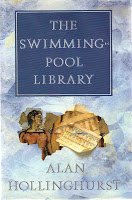 Cecil Valance’s one visit to the Sawle family in Two Acres was to have repercussions for the two families, the Valance’s and the Sawle’s, and for school children and academics for multiple generations. Cecil was a beautiful and charismatic young man who bewitched young Daphne Sawle and left behind a poem which everyone, except her brother George, believed to have been written for her. George knew that the poem had been written for him. In Rupert Brooke fashion, Cecil did not survive the Great War preserving his legacy as tragic young poet lost before his time. The story skips ahead and Daphne is unhappily married to Cecil’s brother Dudley and is hosting an exhausting party which includes a man who is going to write a biography of Cecil Valance. Time passes again and Daphne is a grandmother and entertains a young man (Paul Bryant) who becomes fascinated with the Sawle-Valance families and makes it his career to write the uncensored story.
Cecil Valance’s one visit to the Sawle family in Two Acres was to have repercussions for the two families, the Valance’s and the Sawle’s, and for school children and academics for multiple generations. Cecil was a beautiful and charismatic young man who bewitched young Daphne Sawle and left behind a poem which everyone, except her brother George, believed to have been written for her. George knew that the poem had been written for him. In Rupert Brooke fashion, Cecil did not survive the Great War preserving his legacy as tragic young poet lost before his time. The story skips ahead and Daphne is unhappily married to Cecil’s brother Dudley and is hosting an exhausting party which includes a man who is going to write a biography of Cecil Valance. Time passes again and Daphne is a grandmother and entertains a young man (Paul Bryant) who becomes fascinated with the Sawle-Valance families and makes it his career to write the uncensored story.
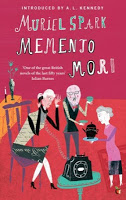 The Stranger’s Child is a perplexing, although engaging book that rambles its way through the twentieth century. It can be read as a reclamation of gay history, a story of a family’s secrets slowly wrenched from them and revealed, the process of literary biography, or, more sordidly, as a slightly distasteful look at our fascination with celebrity culture and muck-raking. E.M. Forster, especially Howards End (M) comes to mind while reading the first section of this multigenerational family saga. By the end, when Daphne is an especially elderly woman, some of the elderly women in Muriel Spark’s novels seem appropriate, perhaps Memento Mori. (M)
The Stranger’s Child is a perplexing, although engaging book that rambles its way through the twentieth century. It can be read as a reclamation of gay history, a story of a family’s secrets slowly wrenched from them and revealed, the process of literary biography, or, more sordidly, as a slightly distasteful look at our fascination with celebrity culture and muck-raking. E.M. Forster, especially Howards End (M) comes to mind while reading the first section of this multigenerational family saga. By the end, when Daphne is an especially elderly woman, some of the elderly women in Muriel Spark’s novels seem appropriate, perhaps Memento Mori. (M)
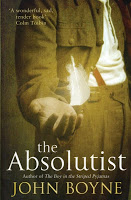 The experience of reading The Stranger’s Child reminded me of The Children’s Book (M) by A.S. Byatt, which we wrote about here a few years ago with its complicated interconnected families and bohemian outlook. Thematically similar, and written about more recently here is The Absolutist (M) by John Boyne. If you have enjoyed novels by Ian McEwan, Evelyn Waugh or Henry James (M) then this might be a good choice for you.
The experience of reading The Stranger’s Child reminded me of The Children’s Book (M) by A.S. Byatt, which we wrote about here a few years ago with its complicated interconnected families and bohemian outlook. Thematically similar, and written about more recently here is The Absolutist (M) by John Boyne. If you have enjoyed novels by Ian McEwan, Evelyn Waugh or Henry James (M) then this might be a good choice for you.

